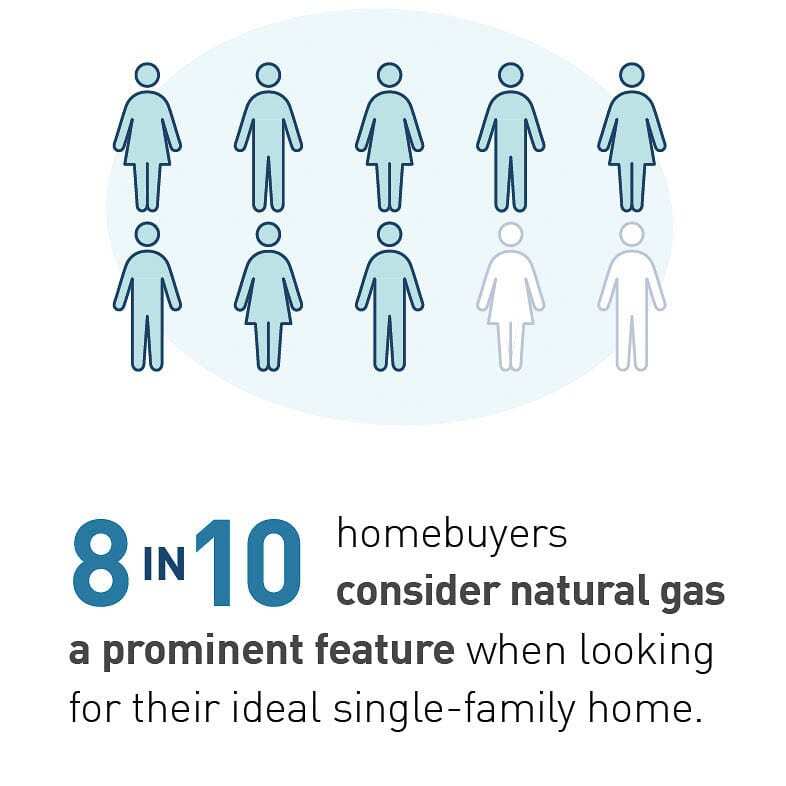Avaly Scarpelli, executive director of the Clark County’s Building Industry Association, provides insight into the impact of natural gas spills in Washington state
Publisher’s Note: The opinions expressed in this column are those of the author alone and do not reflect the editorial position of ClarkCountyToday.com
Answer Scarpelli
Clark County’s Construction Industry Association
Avaly Scarpelli, executive director of the Clark County’s Building Industry Association
Despite the alleged focus on legislation to help the state recover from the COVID-19 pandemic, Washington legislature and Governor Inslee are trying to phase out natural gas in new homes by 2030 and in existing buildings by 2050. These new laws would, among other things, force builders to install heat pumps instead of gas stoves and electric stoves instead of gas stoves.
While the construction industry generally agrees with the adoption of sustainability and energy efficiency best practices, concerns exist about unfunded mandates that are driving property prices up and negatively affecting housing affordability. Instead, state and local authorities should consider promoting innovations for the natural gas system, such as renewable natural gas and renewable hydrogen, that already exist in Europe and are underway here in Washington.
 Courtesy of the Clark County’s Building Industry Association
Courtesy of the Clark County’s Building Industry Association
Switching (from natural gas to electricity) is expensive
Switching appliances from gas to electricity will incur significant and potential upfront costs. While it’s arguably easier to mandate in new builds, ultimately all homeowners will have to make the move. In a recent study by Home Innovation Research Labs (HIRL), mixed climate states (like Washington) could incur remodeling costs of $ 14,495 for new homes and $ 28,491 for retrofitting an existing home (without replacing the hob and upgrading) electrical and / or Adding an electric vehicle charging circuit).
Aside from the upfront costs, the recurring costs associated with electrical energy can be much higher than with natural gas. This is likely to worsen as utility customers make the switch and raise prices on those who cannot afford the cost of switching at the start of an exit (examples could be those eligible for the property tax exemption program : Seniors and individuals with disabilities and first-time buyers).
For homeowners, however, there is good news: As with other government mandates in the past, utilities are expected to encourage homeowners to make the switch. Regardless of whether the incentive is paid by the utility or the government, homeowners will still pay for the transition even though it is technically not paid by the homeowner at the time of the service.
The average life expectancy of most gas appliances tends to be longer than that of electronic appliances: gas stove (20 years) versus heat pump (15 years); Instantaneous water heater (20 years) versus heat pump water heater (12 years); Traditional gas and electric water heaters have roughly the same life expectancy (10-13 years). This generally means that these items need to be replaced more frequently, which increases the costs associated with household appliances. Unsurprisingly, this is another factor that hurts home ownership, making it further inaccessible to those looking to buy a home.
Economic sustainability is important
Contrary to popular belief, the construction industry supports sustainability and energy efficiency efforts as long as such measures do not affect the affordability of living space. We have already looked at the up-front and recurring costs of phasing out natural gas, but before the state can phase out an energy source, our elected leaders must consider whether our current electricity grid can sustain current and future demand. Gas works when there is a power outage, and the shift by consumers and businesses from natural gas to electricity puts severe pressure on the grid as we shut down more generating capacity than ever before.
Furthermore, the dissolution of an entire sector is only likely to lead to higher unemployment if retraining efforts can not be carried out for those in the natural gas sector. This will likely require investment from utility companies and government alike.
Customers need choices
According to a recent survey by Escalent, 83 percent of potential buyers in the Portland-Vancouver metropolitan area would choose a natural gas home across all home values. The study also showed that 8 out of 10 potential home buyers prefer natural gas for heating and cooking. One respondent said, “We prefer to cook with natural gas. It’s also much cheaper to heat our home with natural gas instead of electricity. “
As state and local governments apply sustainability and energy efficiency best practices, we urge them not to go the expensive route but to push for renewable natural gas, focus on reliability, and provide choices to customers.


